Siba is a coastal region stretching from the bridge of Siodobebasi in the north to the Takanava district in the south. The river Furukawa in this place changed its name
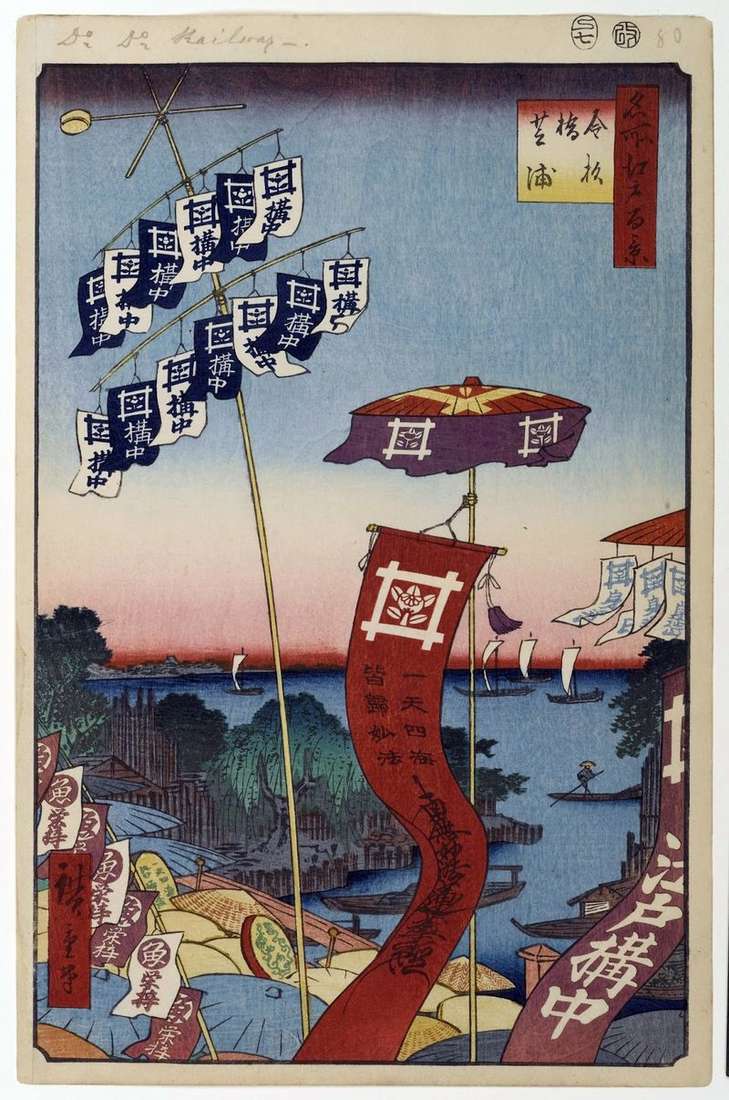

Siba is a coastal region stretching from the bridge of Siodobebasi in the north to the Takanava district in the south. The river Furukawa in this place changed its name
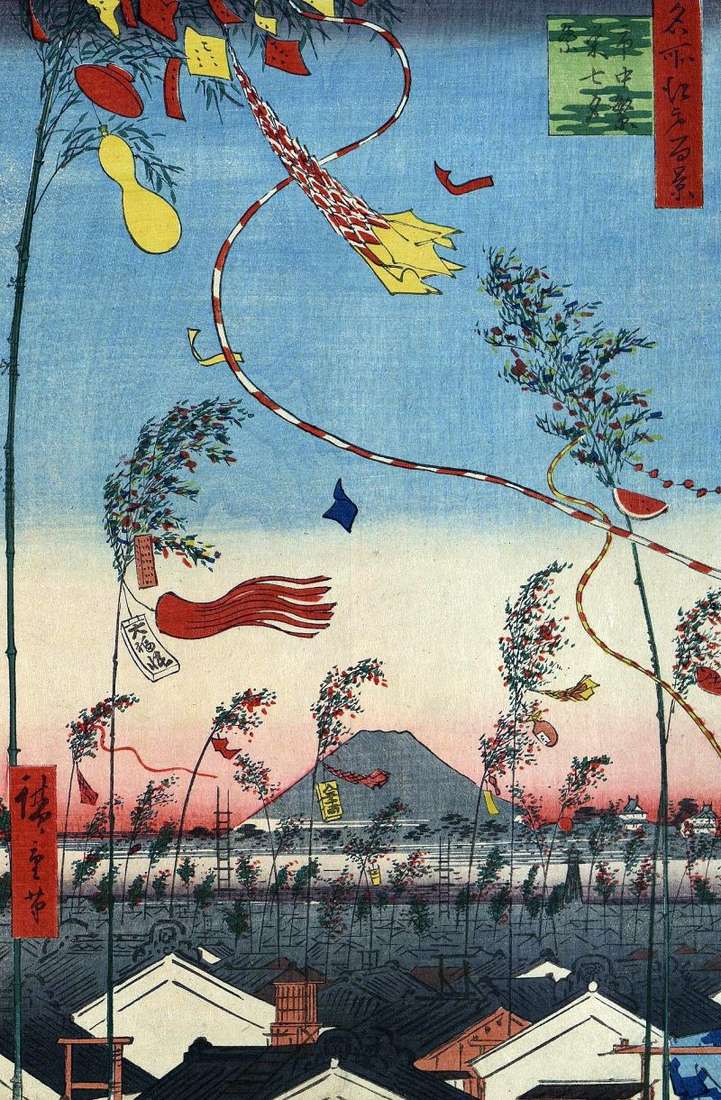
The Tanbata-Matsuri holiday is one of the most romantic holidays in Japan. It is of Chinese origin. In Japan it has been celebrated since the Nara period. Celebrate it on
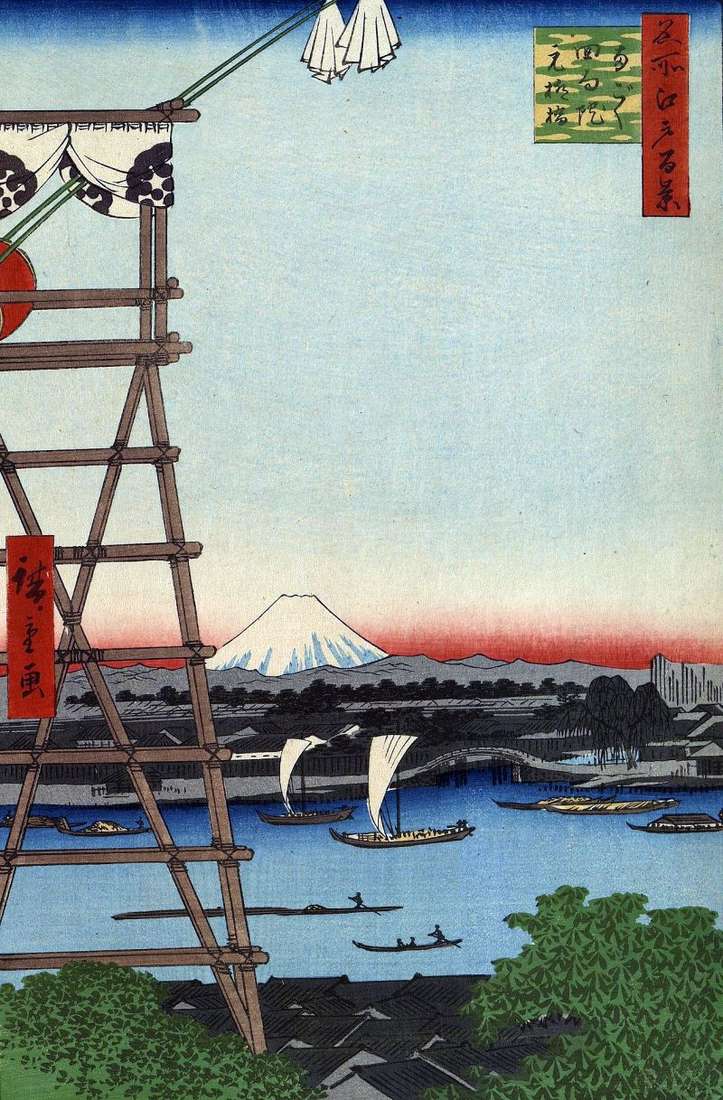
The history of the creation of the Ekoin monastery is associated with the fire in Edo in 1657. During the fire that raged two days, nearly 100,000 people died. It
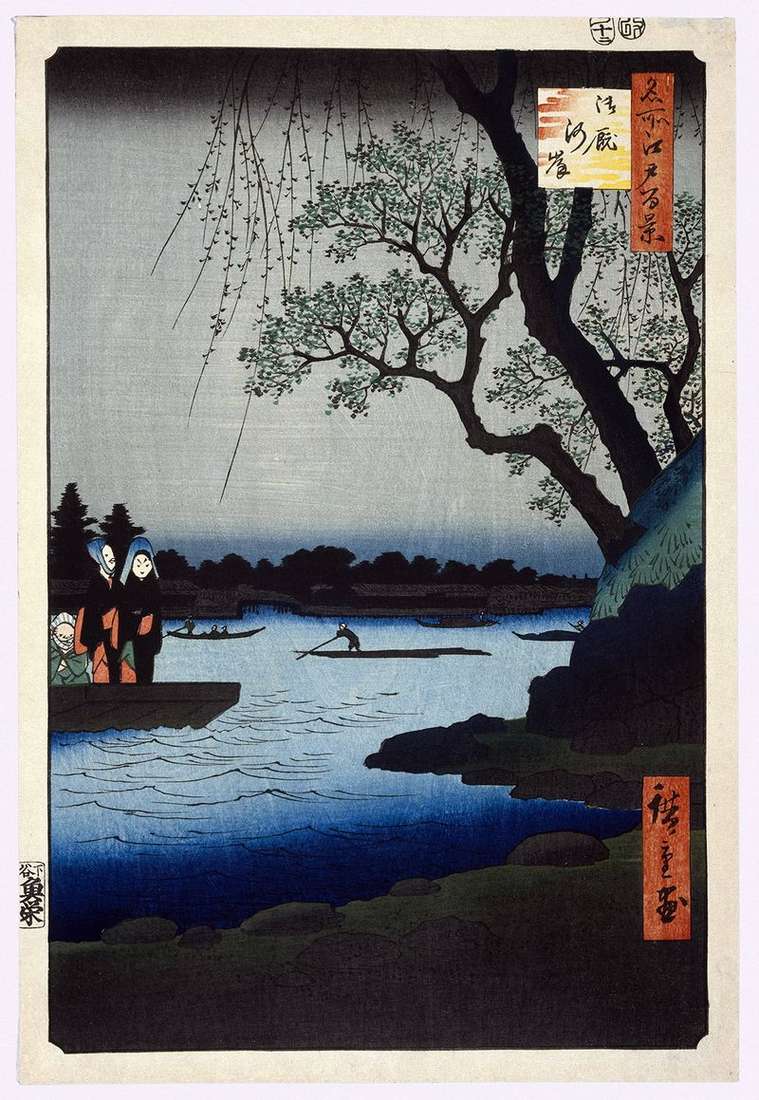
On the right bank of Sumidagawa, between the bridges of Azsu-mabashi and Regokubashi there were Government rice warehouses. In the north from these places, in Miesite, on the banks of
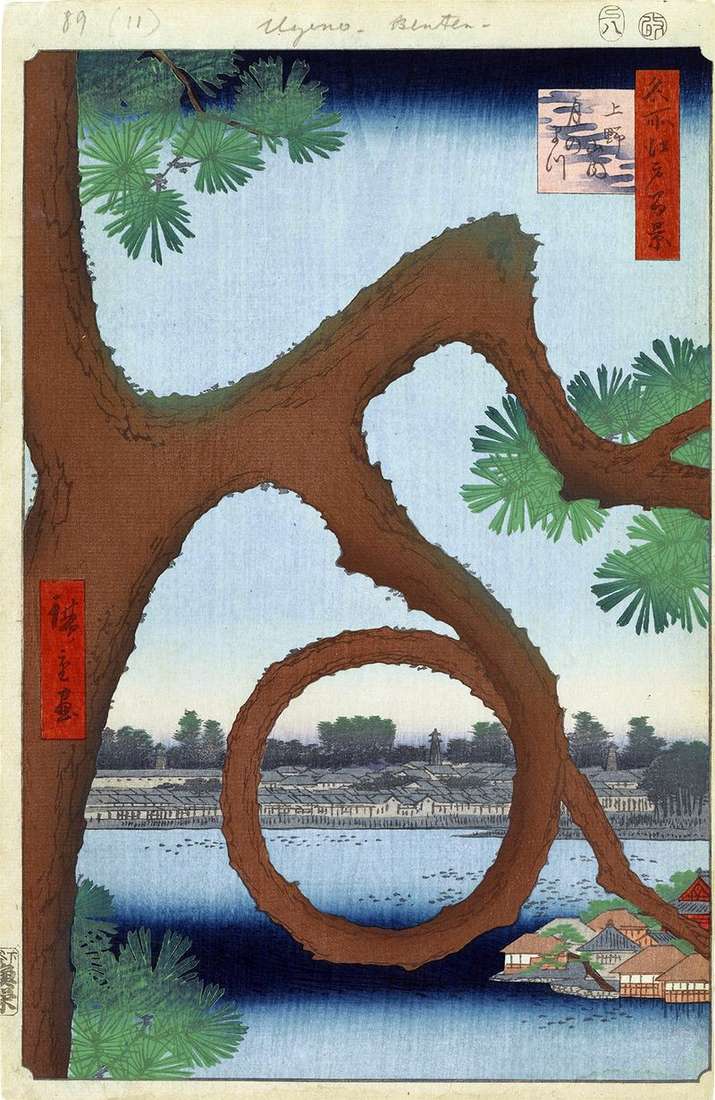
In the engraving is shown a pond Sinobadzunoike near the temple Kaneydzi in Ueno. Hiroshige brings to the fore a pine bizarre shape: its branches bend, forming a circle. For
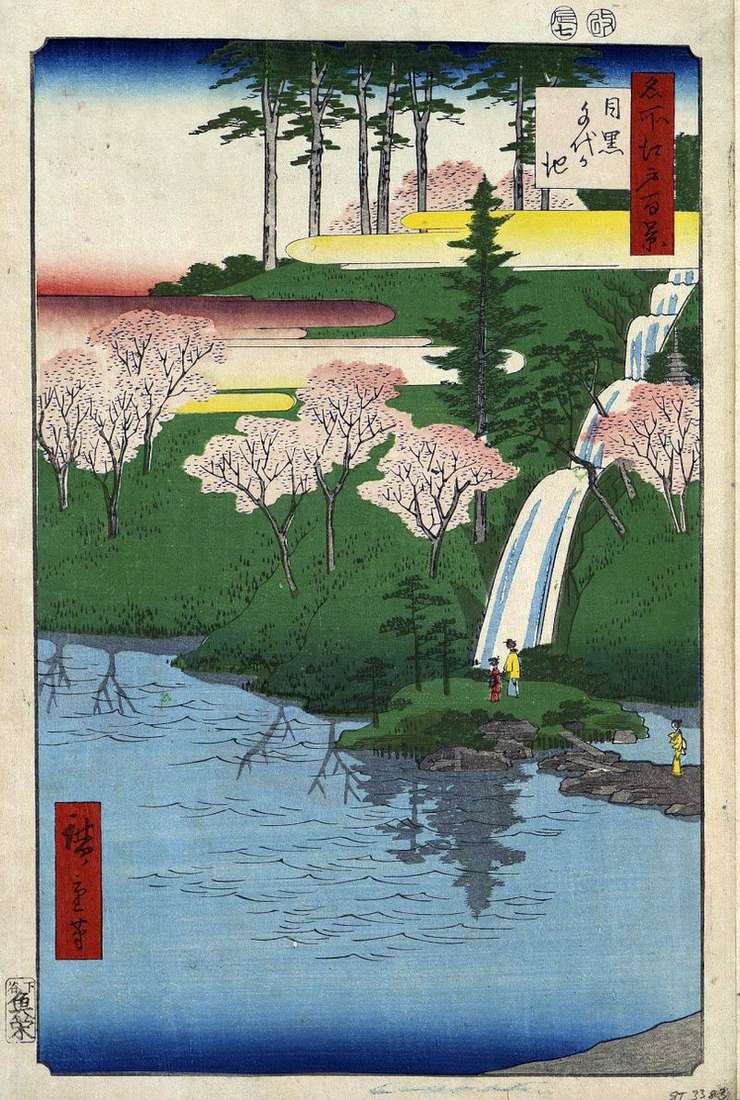
From the elevation of Meguro Tiegasaki, a beautiful view of the south-western part of Edo opens. From here you could see the river Megurogava, rice fields, and then the mountains
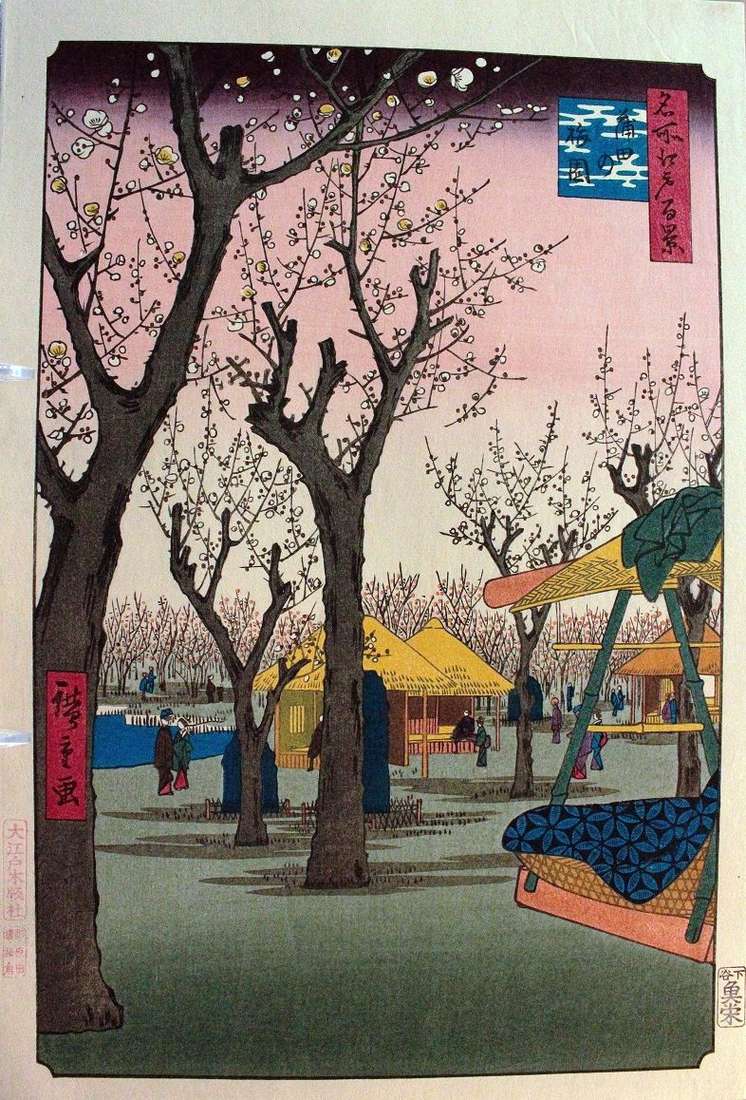
The area of Kamata – the southern outskirts of the capital – has been famous since ancient times for an abundance of plum trees. Plum orchard in Kamata was created
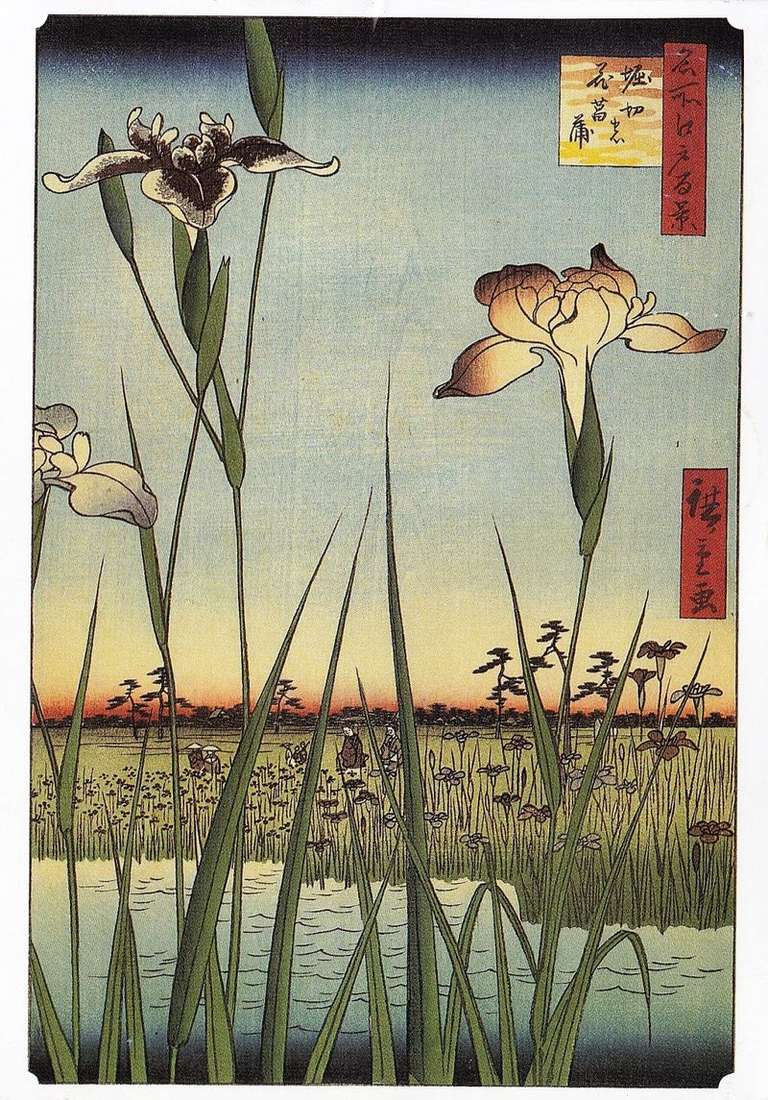
The village of Horikiri-mura, which was located to the north of the island of Mukoejima, southwest of the Ayasegawa River, was known for plantations of irises and peonies. Its land
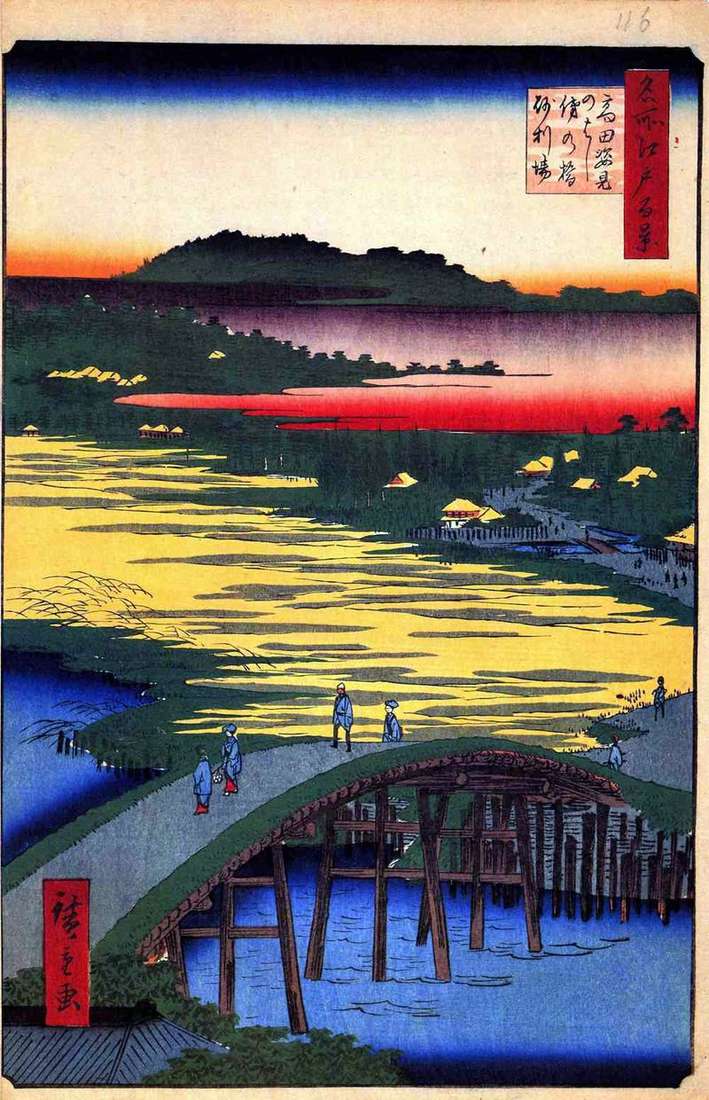
The bridge in the foreground of the engraving is called Oma-kagehasi. It is transferred through the aqueduct of Kanda-jesuy. A small bridge in the background of the engraving is probably
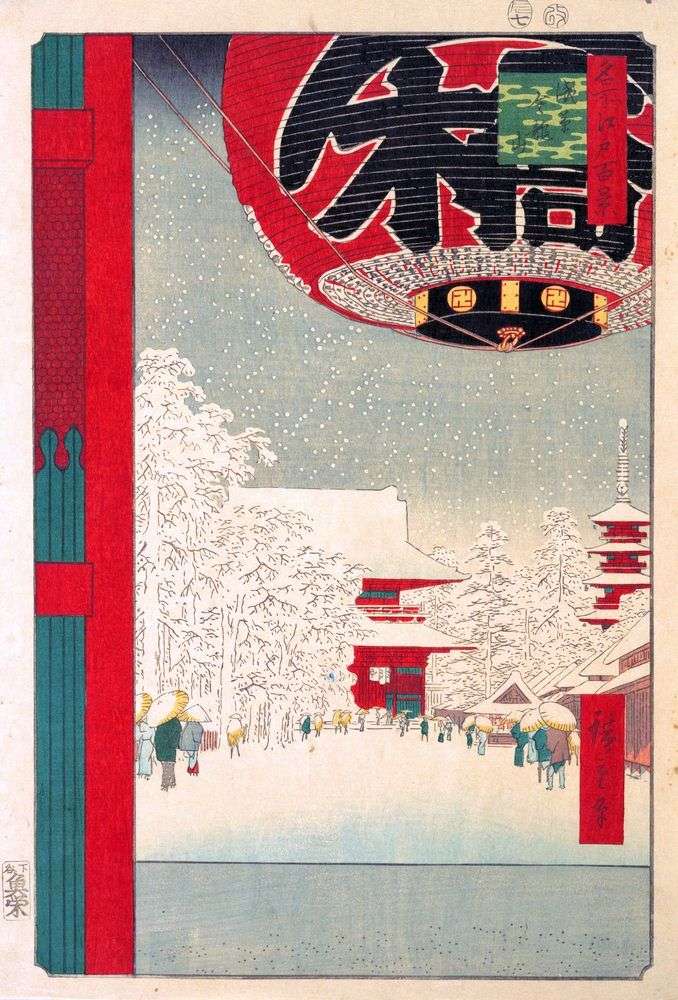
Engraving, opening the “winter season” is dedicated to the monastery of Kinryudzan, its other name is Sansoji. This monastery is one of the three oldest and most significant centers of
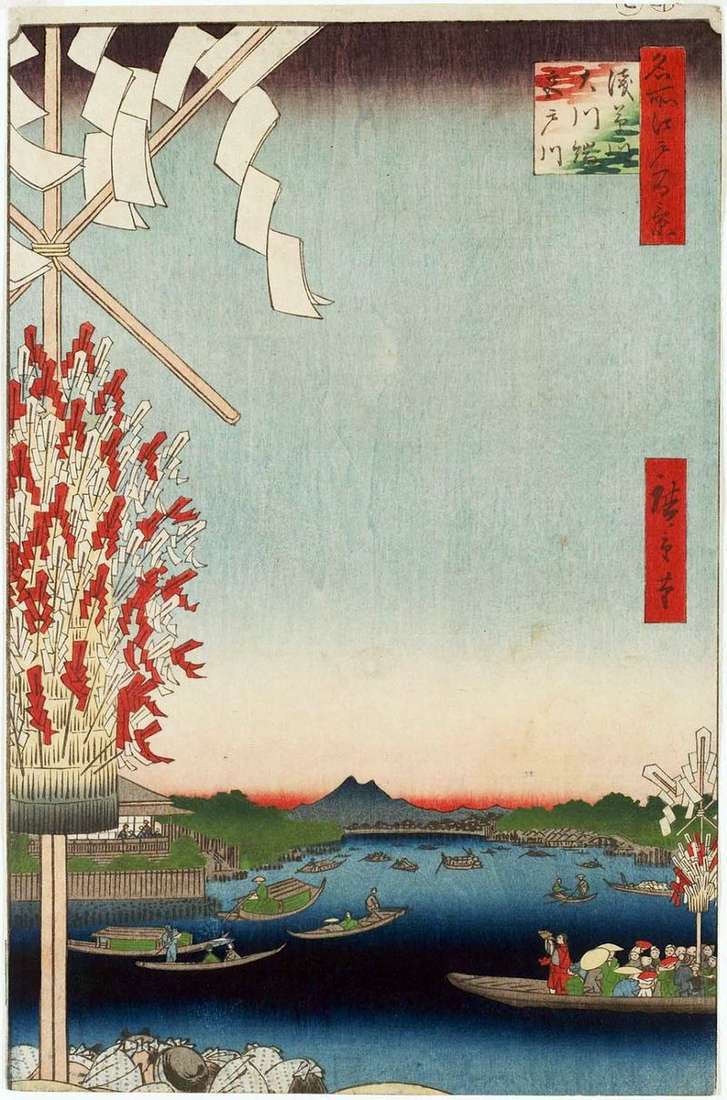
Asakusagawa, Miyatogawa, Okawa – the names of the same river Arakawa. The lower course of the Arakawa River from the bridge of Senju-Ohashi is called Sumidagawa. In the Asakusa area,
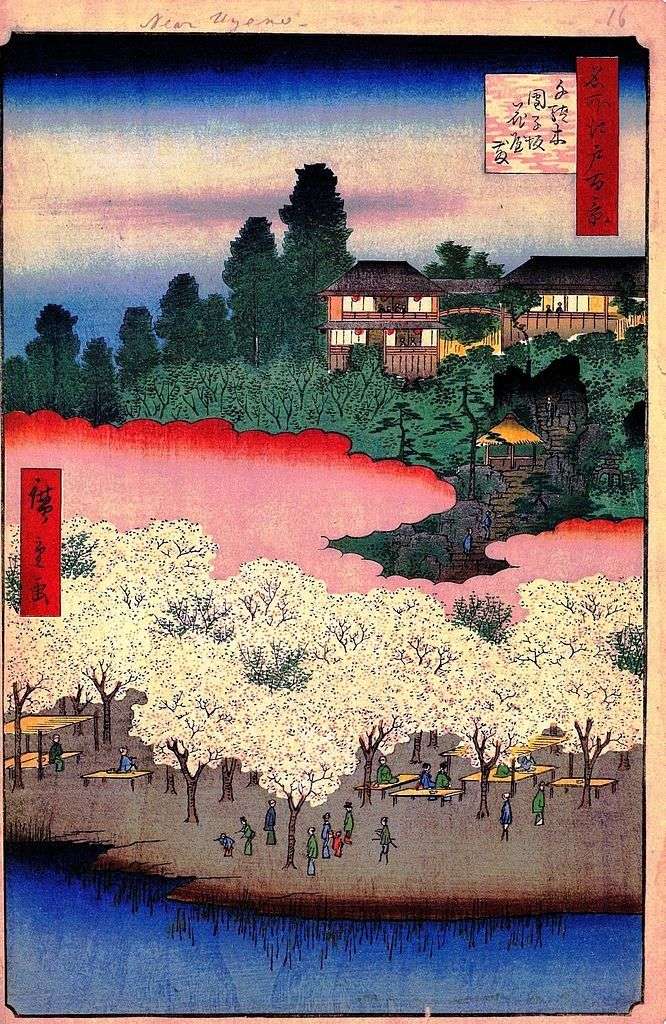
It is believed that the name Sandaga came from the main fishery of local peasants harvesting firewood in the surrounding forest, overgrown with trees sendan. Then they were brought to
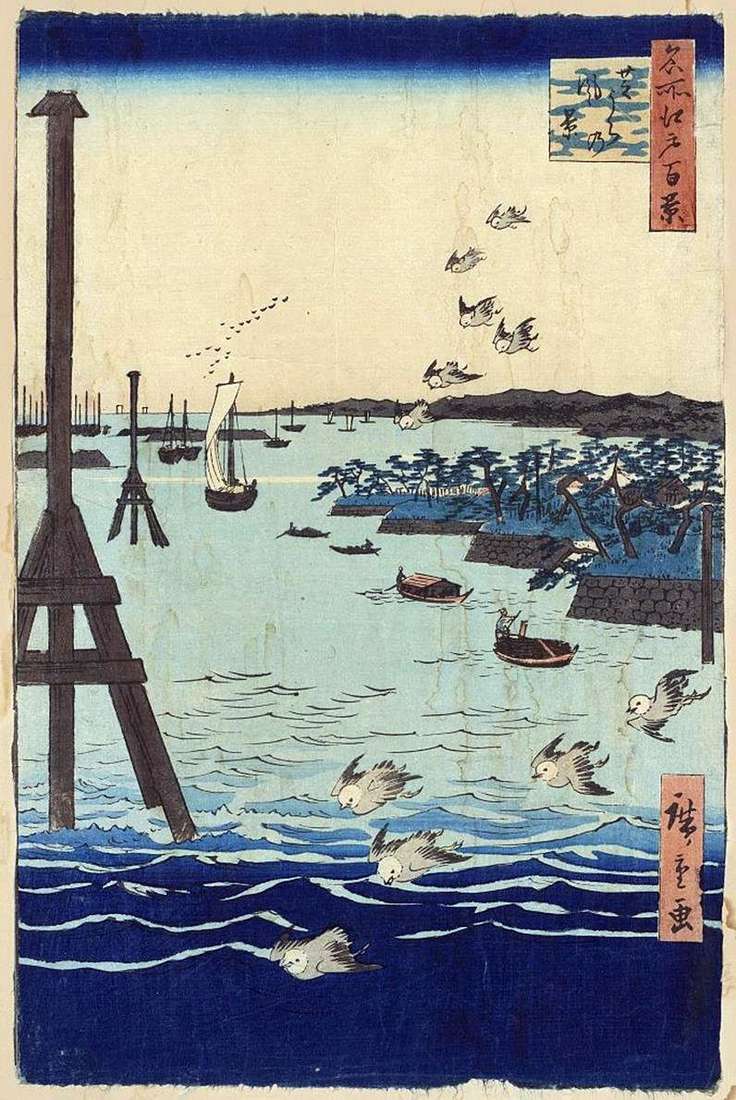
Sibaura – the coast from the bridge of Shiodobebasi to the Takanava quarter. Hiroshige depicts a small section of it, where the Simbasigawa River flows into the Edo Gulf. Until